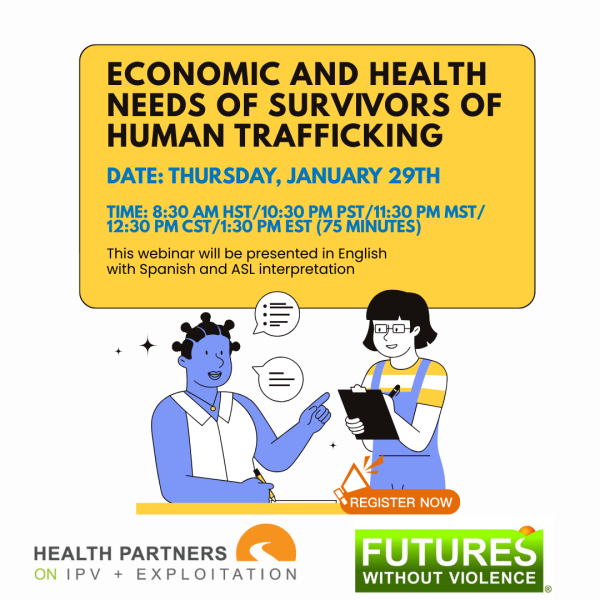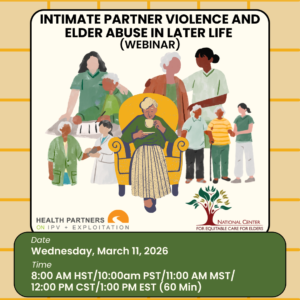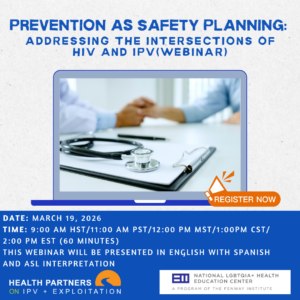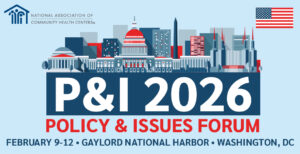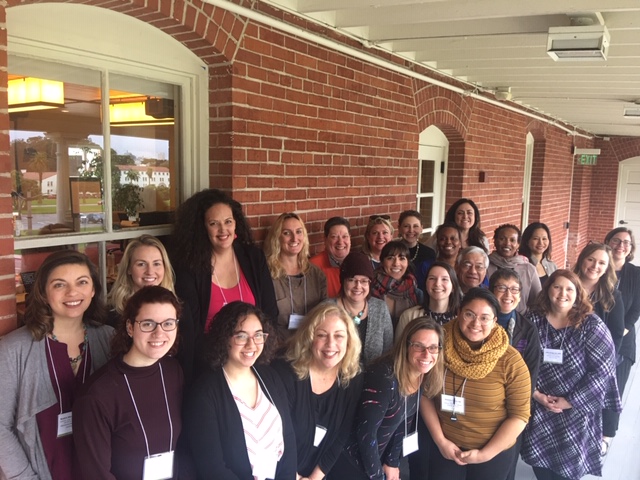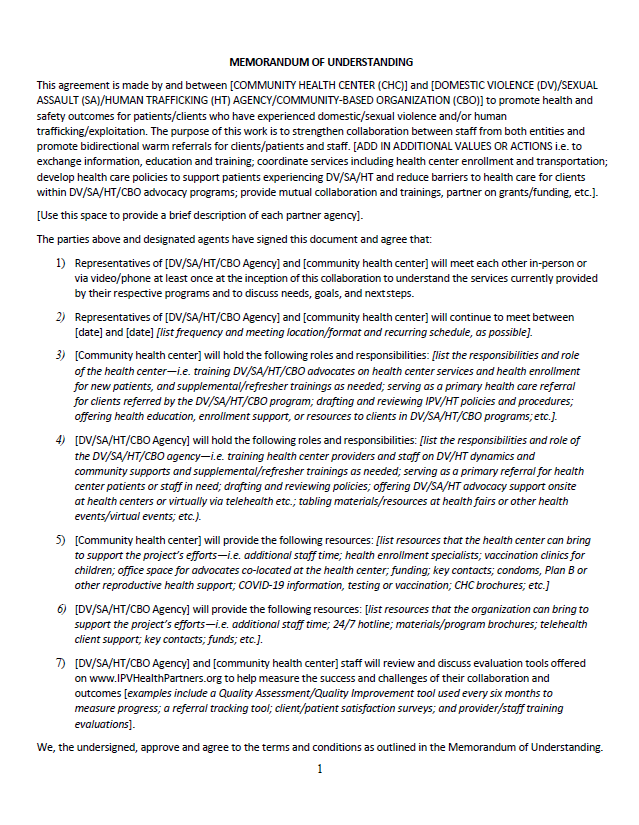Health Centers Are Key to Violence Prevention
We work with health centers to support those at risk of experiencing or surviving intimate partner violence (IPV), human trafficking (HT), and exploitation, and to bolster prevention efforts.
Our Impact
Health Partners on IPV + Exploitation serves the nation’s network of 15,000 federally-funded health centers through training on building partnerships, policy development, and the integration of processes designed to promote prevention and increase the identification and referral to supportive services for individuals at risk for, experiencing, or surviving IPV, HT, and exploitation.
Health Partners works to build partnerships between health centers and domestic violence and sexual assault (DV/SA) advocacy programs–they are natural partners given their shared mission to improve the health, wellness, and safety of their patients and clients.
Catalyst for Change

“Catalyst for Change” is a monthly newsletter published by Health Partners on IPV + Exploitation to provide the latest on our learning opportunities and new resources.
To view past editions of “Catalyst for Change”, please check out the Archived Newsletter tab to the left.
To receive new editions of “Catalyst for Change” scroll to the bottom of this page to subscribe!
Announcements
Connect with us
Economic and Health Needs of Survivors of Human Trafficking (Webinar)
This webinar will be presented in English with Spanish and ASL interpretation. Este seminario web se presentará en inglés con interpretación en español y ASL.
In recognition of Human Trafficking Awareness Month in January, two projects from Futures Without Violence, Health Partners on IPV +Exploitation and the Center for Economic Futures, are hosting an online training focused on the health and well-being of human trafficking survivors. The webinar will explore how to address their economic and employment needs, including mental health and primary care needs, with a lens on health center strategies.
Date: Thursday, January 29th
Time: 8:30 am HST/10:30 pm PST/11:30 pm MST/12:30 pm CST/1:30 pm EST (75 minutes)
To learn more and register, click here.
Intimate Partner Violence and Elder Abuse Later in Life (Webinar)
This webinar will be presented in English with Spanish and ASL interpretation. Este seminario web se presentará en inglés con interpretación en español y ASL.
Health Partners on IPV +Exploitation and NCECE are hosting a national webinar focused on the prevalence and health impact of intimate partner violence (IPV) in later life and elder abuse. The session will offer strategies to facilitate patient conversations, assessments, and response for IPV, and how to improve access to supportive community services.
Date: Wednesday, March 11, 2026
Time: 8:00 AM HST/10:00am PST/11:00 AM MST/12:00 PM CST/1:00 PM EST (60-minute webinar)
To learn more and register, click here.
Prevention as Safety Planning: Addressing the Intersections of HIV and IPV
This webinar will be presented in English with Spanish and ASL interpretation. Este seminario web se presentará en inglés con interpretación en español y ASL.
This webinar, hosted in partnership with Fenway Health, will bring sites together to learn about the intersections of HIV and intimate partner violence. We will discuss prevention as a safety planning tool, address common misconceptions regarding HIV prevention, and work to improve HIV prevention efforts.
Date: Thursday, March 19, 2025
Time: 9:00 AM HST/11:00 AM PST/12:00 PM MST/1:00 PM CST/2:00 PM EST (60-minute webinar)
To learn more and register, click here.
Upcoming Events
Featured Resources
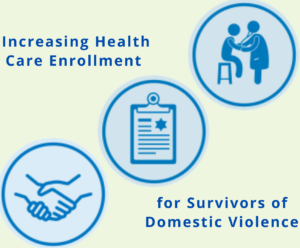
Increasing Health Care Enrollment for Survivors of Domestic Violence
People who have experienced intimate partner violence (IPV) have unique health care needs, making insurance

Using Community Referral Technology Platforms to Safely Connect Health Center Patients with Community-based Domestic Violence Services
This memo provides recommendations for health center (HC) staff as they implement, tailor, and use

Farmworker Safety Card Tool
Health Partners on IPV + Exploitation, a project of Futures Without Violence, and Alianza Nacional de
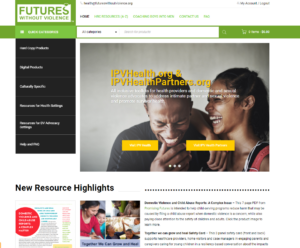
Order Materials
Order hard copies of safety cards, posters, and more from FUTURES’ National Health Resource Center on Domestic Violence
Featured Resources

Increasing Health Care Enrollment for Survivors of Domestic Violence
People who have experienced intimate partner violence (IPV) have unique health care needs, making insurance

Using Community Referral Technology Platforms to Safely Connect Health Center Patients with Community-based Domestic Violence Services
This memo provides recommendations for health center (HC) staff as they implement, tailor, and use

Farmworker Safety Card Tool
Health Partners on IPV + Exploitation, a project of Futures Without Violence, and Alianza Nacional de

Order Materials
Order hard copies of safety cards, posters, and more from FUTURES’ National Health Resource Center on Domestic Violence
